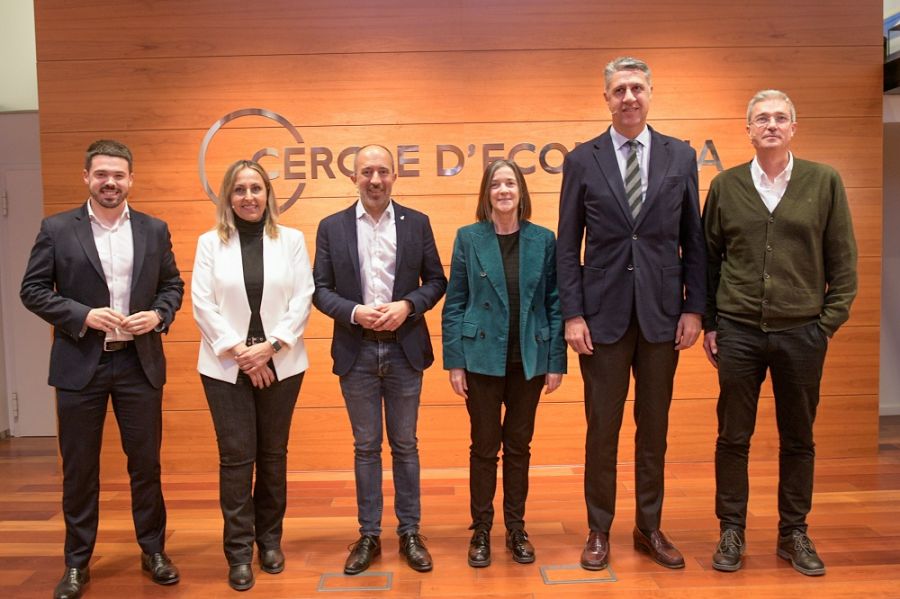
The matter of immigration has a major local impact. In a debate moderated by Nacho Corredor, a political scientist and member of the Cercle d'Economia, the mayors of Badalona, Badia del Vallès, Guissona, and Manresa addressed their municipal immigration management strategies in the third session of the cycle entitled “Immigration in high-income countries: problem or solution?” presented by the vice president of the Cercle, Teresa Garcia-Milà.
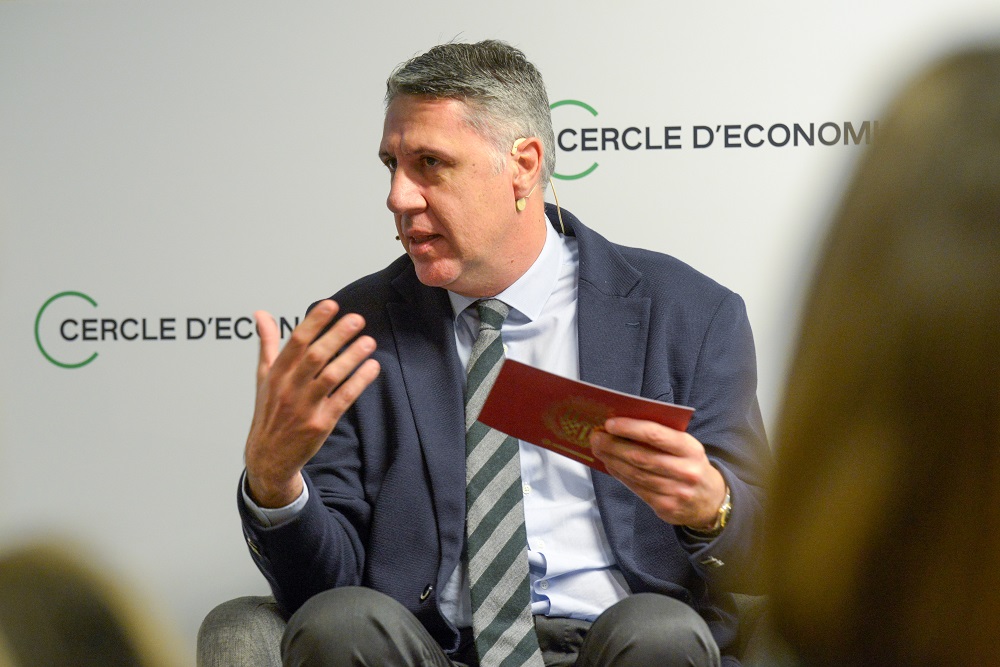
The mayor of Badalona, Xavier Garcia Albiol, began his speech by stating that “we have to be a welcoming country, but we have to do so within our possibilities”. He added that he does not share the “unlimited and uncontrolled immigration policies that then leave new arrivals roaming freely and not being able to work properly”. “If we have to be so supportive and we have to let everyone in, let them have papers and be able to work. If not, it's a hypocritical argument”, he assured. García Albiol admitted, however, that “on a quantitative level, Badalona does not have an immigration problem since we are below the Catalan average”.
Xavier Garcia Albiol also positioned himself “against multiculturalism and in favor of plurality”. “I only ask the people who want to come to Badalona to adapt to our values, for example, equality between men and women”, he said, admitting that the vast majority of those who come do so. “There are rights, but also obligations,” he stated.
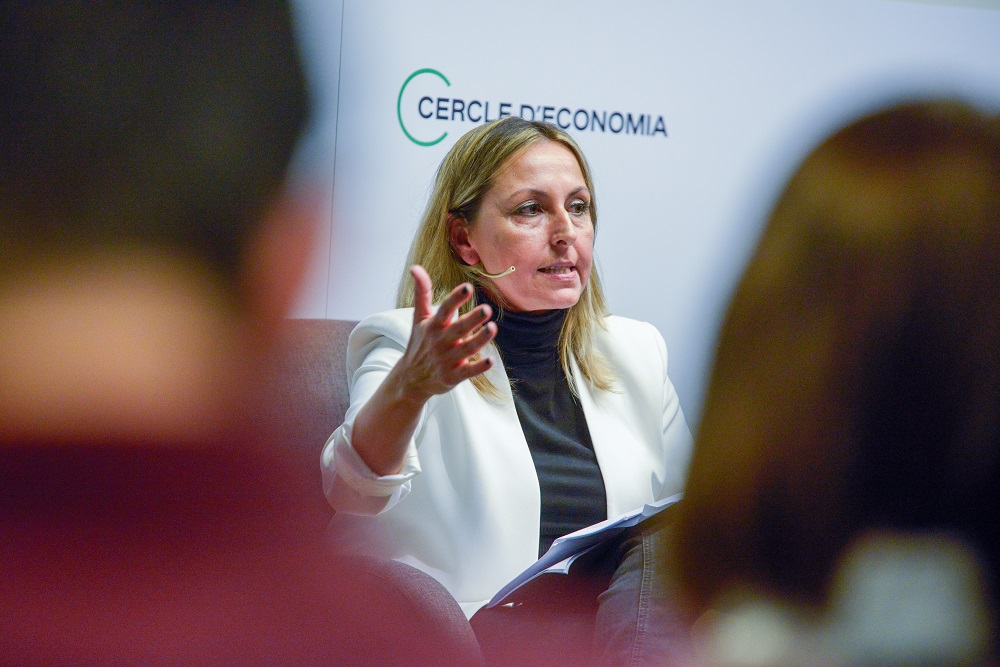
The mayor of Badia del Vallès, Eva Menor, opposed Albiol's ideas, demanding a political pact on this issue and clarifying that her municipality, where immigrants make up only 5% of the population, also has problems of citizens with local roots who cause conflicts “and yet no one asks to see their immigration papers”. Menor assured that “immigration is a multifaceted issue that cannot be simplified” and added that reducing immigration for the purposes of a specific area such as security “can end up having an economic cost”. She also claimed that immigration “has a positive impact, provides wealth, represents 1% of the GDP and helps replenish pensions”. “The unemployment rate of young people under 30 years of age is only 1 point higher than the rate among people born here,” she stressed.
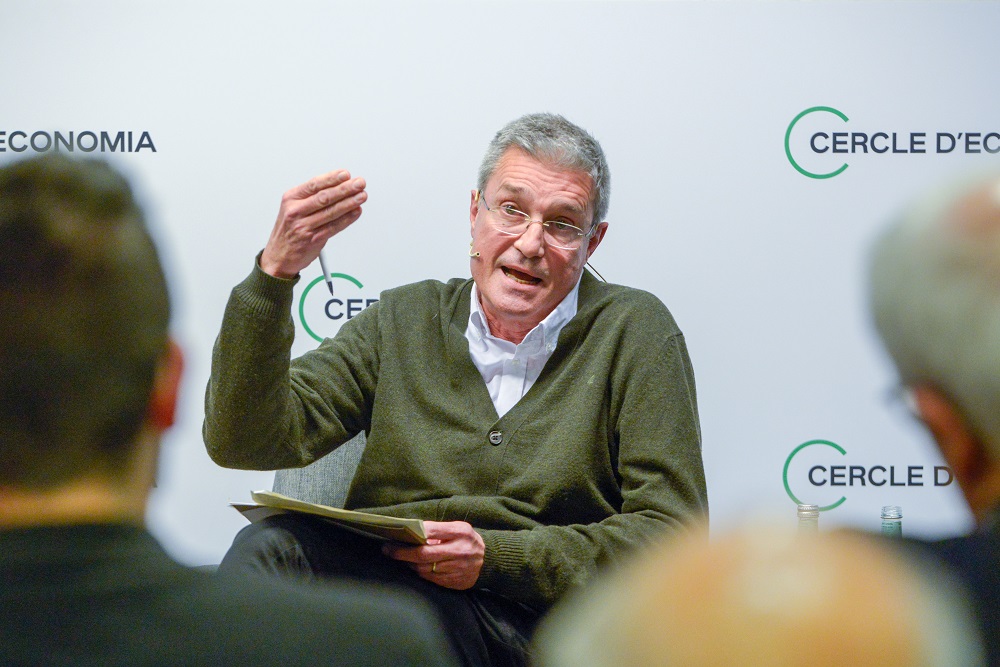
The mayor of Guissona, Jaume Ars, explained that in his municipality “with a population of 7,800 inhabitants, we have 52%-53% immigration from 43 nationalities, and only 2%-2.5% unemployment thanks largely to BonÀrea”. Jaume Ars highlighted that “we have a committee to encourage cohesion that is a great tool for peaceful coexistence and also to move forward, I would not say towards welcoming, but towards social cohesion”. “We have to find a way to make the newcomers feel a sense of joint responsibility,” said Ars, adding that “we have incorporated a series of identities without losing our own”. The mayor of Guissona stressed that “being able to have this diversity is not so much a challenge as an opportunity” and exemplified this with the “inverted” age pyramid in Guissona: “the largest population, around 40% or 45%, comes from age groups between zero and thirty years old”. Jaume Ars however demanded “more powers on immigration matters”.
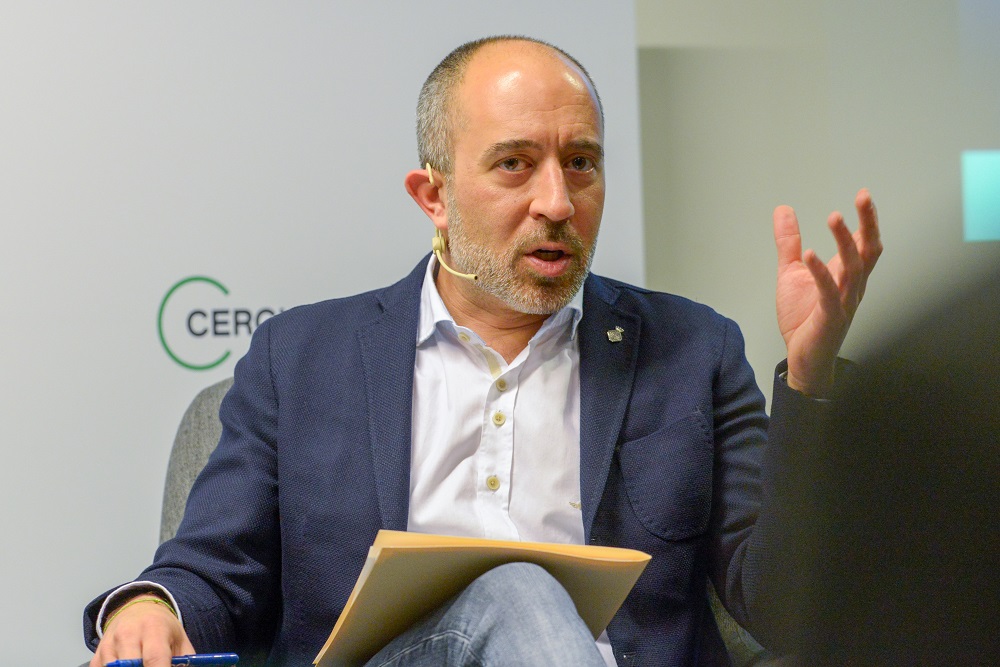
The mayor of Manresa, Marc Aloy, indicated that the city has exceeded 80,000 inhabitants, 21% of whom are immigrants from 107 nationalities. With an aging population, “immigrants make up a large portion of the youth”. Aloy recalled that Catalonia is a country “that needs labor because there are many jobs that the local population does not want to do”. He also wanted to emphasize the contradiction of an immigration law that “allows people who arrive to have access to health and education, but cannot have the right to residence and work”. “The immigration law is a burden for managing immigration because it means that people who arrive spend three years before they can legalize their situation”, he stressed.
Marc Aloy complained that some cities welcome many more people than others. “We have many shelter places because the state has said that there is an organization in Manresa that has offered itself up for the task. But we do not have more tools than other cities to respond to this situation. Therefore, the state must seek an equitable distribution of immigrants as well as the resources to be able to provide solutions. If not, the municipalities are lost”, he stated.
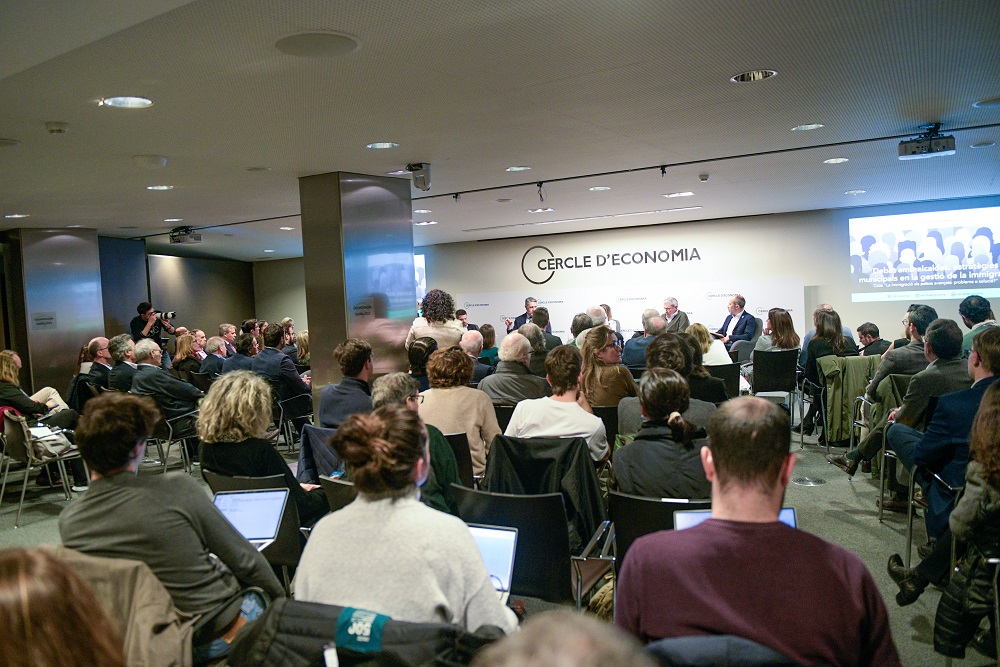
The four mayors all were in agreement about asking for more economic resources for the municipalities, as well as about defending the need to support Catalan as a unifying and cohesive element for the population.
Responding to questions from the public about the delay in registering immigrants, as some NGOs claim happens in Badalona and Manresa, the mayor of the capital of Bages responded that “if an immigrant has a rental or purchase contract before registering, it is very easy, but if not, everything is very slow, and visits must be made to prove that they live in the city”. Aloy admitted that “we had a surge in arrivals which set the process back, but that's not the case anymore”. “As you see, the PP and ERC have problems in common”, said the mayor of Badalona Xavier Garcia Albiol. The councilor from Guissona explained that they carry out free registration because “it guarantees the health insurance card, education and healthcare”. The mayor of Badia del Vallès, for her part, assured that “denying registration is of no use”.